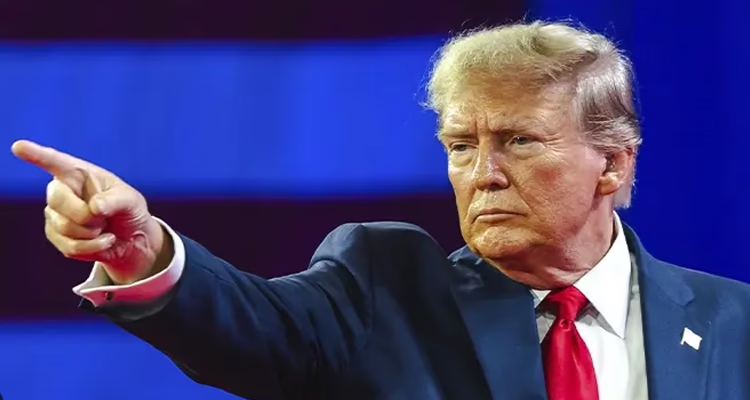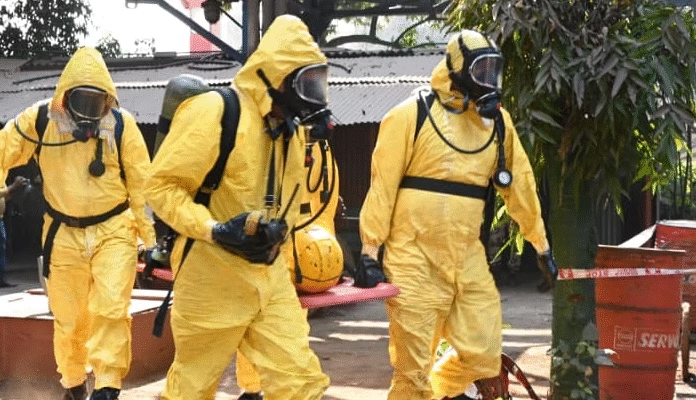
Trump Plans New Anti-China Axis with Pakistan, Offers Bases-for-Jets Deal
Trump Reshapes South Asia Strategy: Seeks Bases in Pakistan, Isolating China
News Desk: In a high-stakes diplomatic overture, US President Donald Trump has reportedly offered Pakistan access to fifth-generation fighter jets, advanced missile systems, and substantial financial aid — in return for military base access and a strategic distancing from China and Russia, CNN-News18 cited top sources as saying.
During a working lunch at the White House with Pakistan’s powerful Army Chief, Field Marshal Asim Munir, Trump laid out his vision for a renewed US-Pakistan military alliance. The reported offer includes access to key Pakistani military bases and seaports, which Trump sees as vital to expanding America’s footprint across South Asia and West Asia.
Sources said Trump was explicit: “Give me your military bases, I’ll give you fighter jets.”
However, the deal comes with conditions. The most prominent among them — Pakistan must scale back its military and strategic ties with Beijing and Moscow. This marks a notable geopolitical pivot, especially as Pakistan has leaned heavily on Chinese military hardware and funding in recent years, acquiring fighters, missiles, and other platforms from Beijing.
Despite Pakistan’s legacy of using American systems like the F-16 jets and naval vessels, its recent alignment with China has raised concerns in Washington. Trump’s overture seems aimed at reversing that drift.
The report also highlights that Trump is considering Pakistan a crucial partner in a possible future conflict in the Middle East — specifically if the US decides to support Israel in a war against Iran. In such a scenario, American access to Pakistani military and logistics hubs, including sea routes, would be vital.
A top diplomatic source told CNN-News18 that Trump sees Pakistan as a strategic counterweight in the region and wants it on America’s side in any West Asia escalation.
While the optics of a “working lunch” may seem routine, the content of the meeting suggests a serious recalibration of US-Pakistan ties. Trump later praised Munir, calling him a “smart man” and saying he was “honoured” to meet him.
The meeting came just hours after Trump held a phone call with Indian Prime Minister Narendra Modi — a juxtaposition that highlights Washington’s delicate balancing act between South Asia’s nuclear neighbours. Trump claimed during the meet that his efforts had helped prevent another India-Pakistan war in the aftermath of the recent terror attack in Pahalgam, Jammu & Kashmir.
This outreach to Pakistan also follows a notably frosty period under the Biden administration, during which President Biden never directly engaged with Pakistani leadership — a diplomatic snub that significantly cooled bilateral relations.
Pakistan’s Nur Khan Airbase Under US Control? Imtiaz Gul’s Bombshell Adds Fuel
In a separate but related development earlier this month, Pakistani security analyst Imtiaz Gul stirred fresh controversy by alleging that the Nur Khan airbase in Rawalpindi is effectively “under American control.” In a viral video, Gul claimed even senior Pakistan Army officers are not permitted to interfere in the operations there — fueling suspicions of undisclosed US-Pakistan military arrangements.
⚡ PAK AIRBASE UNDER U.S. CONTROL:
Pakistani journalist Imtiaz Gul claims that Pakistan’s Nur Khan Airbase is managed by Americans, and even Pakistani Army officers are not allowed to interfere. pic.twitter.com/J0QOEhNEXS
— OSINT Updates (@OsintUpdates) June 2, 2025
According to Gul, American aircraft are frequently spotted at the base, with little to no transparency about their cargo or operations. If accurate, this suggests a deeper level of covert military cooperation and raises concerns about Pakistani sovereignty.
These revelations — combined with Trump’s offer — signal a potentially dramatic shift in Pakistan’s geopolitical alignment and the revival of a Cold War-era-style alliance with the United States, albeit under a new and volatile global order.



